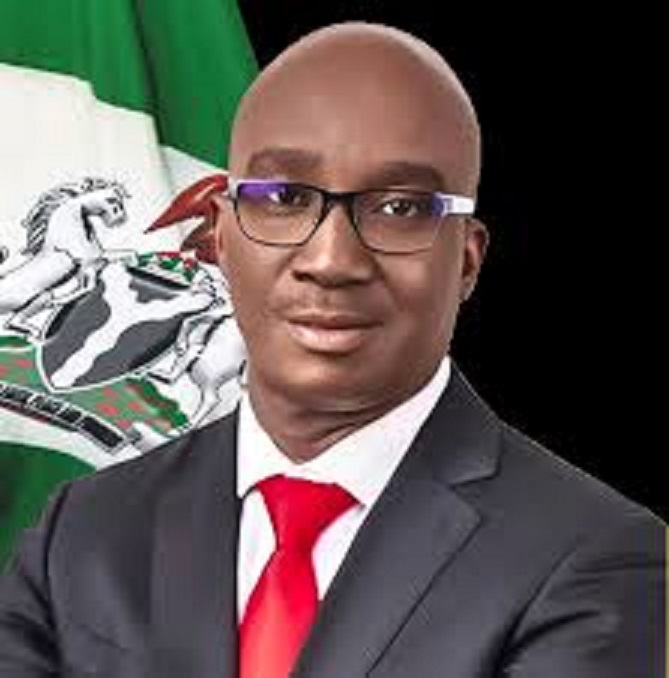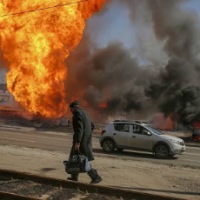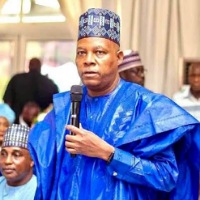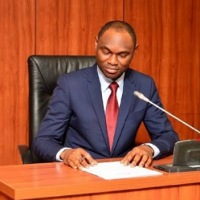NEWS
Deputy CBN Governor Aisha Ahmad Under DSS Interrogation

The Department of State Services (DSS) has apprehended and placed under custody Aisha Ahmad, the Deputy Governor of the Central Bank of Nigeria responsible for Financial System Stability.
According to reports from NTA on its former Twitter account, Ahmad is reportedly in detention due to suspected involvement in the improper acquisition of shares within Polaris Bank, Titan Trust Bank, and Union Bank.
The DSS is currently questioning the CBN Deputy Governor regarding the source of the $300 million used to finalize the acquisition of Union Bank by Titan Trust Bank.
Aisha Ahmad took office as Deputy CBN governor on October 6, 2017, succeeding Sarah Alade, who retired in March 2017. Her confirmation by the Nigerian Senate occurred on March 22, 2018.
In December 2022, the Peoples Gazette published a report alleging that Aisha Ahmad had a hand in facilitating the sale of Polaris Bank at a favorable price, with potential motives linked to her aspiration for the role of Governor at the Central Bank of Nigeria (CBN).
In response, the CBN vehemently denied these claims, maintaining that the decision to sell Polaris Bank was a collective institutional choice, overseen by a committee comprised of senior representatives from the Asset Management Corporation of Nigeria (AMCON) and the CBN.
Furthermore, the divestment process was meticulously managed with the guidance of external legal and financial advisors and received the formal approval of the leadership and boards of both Polaris Bank and the purchasing entity, Strategic Capital Investment Limited.
NEWS
Tinubu To Attend Africa Heads of State Energy Summit In Tanzania

President Bola Ahmed Tinubu will depart Abuja on Sunday, January 26, 2025, to participate in the Africa Heads of State Energy Summit in Dar es Salaam, Tanzania.
The two-day summit, scheduled for January 27-28, 2025, is aimed at advancing “Mission 300,” a pan-African initiative to provide electricity to 300 million people across the continent by 2030.
Hosted by the Tanzanian government in collaboration with the African Development Bank Group and the World Bank, the summit will bring together African leaders, private sector stakeholders, development partners, and civil society organizations.
READ MORE: Tinubu Appoints Ganduje, Ajibola, Others As Heads Of Federal Agencies
The goal is to develop strategies for accelerating energy access in underserved regions, increasing renewable energy adoption, and mobilizing private sector investment.
According to a statement released on Saturday by Bayo Onanuga, Special Adviser to the President, the summit will serve as a platform for sharing expertise, knowledge, and resources to address Africa’s energy challenges.
The first day of the summit will feature ministerial-level discussions, during which participating nations, including Nigeria, will present their national energy strategies, or “compacts,” detailing their plans to achieve universal energy access within five years.
On the second day, African Heads of State will sign the Dar es Salaam Energy Declaration, a unified roadmap for achieving the goals of Mission 300.
President Tinubu is expected to deliver a national statement reaffirming Nigeria’s commitment to universal energy access and its leadership role in the continent’s energy sector.
He will also highlight Nigeria’s ongoing clean energy initiatives and integrated energy delivery strategies aimed at fostering sustainable development across Africa.
Accompanying the president will be key government officials, including Minister of State for Foreign Affairs Ambassador Bianca Odumegwu-Ojukwu, Minister of Power Adebayo Adelabu, and Special Adviser to the President on Energy Olu Verheijen.
President Tinubu is set to return to Abuja immediately after the summit concludes.
NEWS
Italy Collaborates With Edo To Combat Irregular Migration

The menace of illegal migration is getting diplomatic attention from the Italian authorities and the Edo State Government.
The Chief Press Secretary to Edo State Governor, Fred Itua divulged this in a government house statement issued in Benin City on Saturday.
He explained that the Coordinator, Office of the First Lady, Edesili Anani had expressed the readiness of the Governor, Monday Okpebholo-led administration to tackle the menace of irregular migration among youths in the state.
ALSO READ: Terrorism: Police Neutralises ESN Kingpins, Destroys Camps In Imo
It was gathered that Anani made the stance public on Friday in Government House, Benin City, when Dr. Alberto Cilala, a consultant to the European Union and President of Mattei Africa for Humanitarian Aids Initiative in Italy, led a delegation to her office.
Welcoming the delegation, she highlighted the importance of collaboration to address the challenges posed by irregular migration.
The Coordinator expressed her gratitude to the delegation, and emphasized the transformative impact the partnership will bring to Edo State.
In her words, “This initiative will reduce unemployment, create job opportunities, and address human trafficking and irregular migration. It will also enhance education, skills acquisition, agricultural investment, and infrastructural development for our people.”
On his part, Dr. Cilala emphasized that the Mattei Plan would provide valuable skills to Edo State residents, including tailoring, furniture-making, shoemaking, and more.
“The Mattei Plan was launched by the Italian Government with a focus on six key sectors: education and training, health, security, agriculture, and renewable energy. The goal is to promote integrated development and improve living conditions, particularly in rural areas.
“These projects will be fully funded by the Italian Government through the Ministry of Foreign Affairs and Labour,” he stated.
Former Senior Special Assistant to the Edo State Government on Anti-Human Trafficking and Irregular Migration, Solomon Okoduwa, in his remarks, said the Mattei Plan prioritizes practical measures to reduce irregular migration and human trafficking.
“Although nine African countries are involved in this initiative, Edo State is a crucial partner for Italy. This partnership will strengthen bilateral relations under the leadership of His Excellency, Senator Monday Okpebholo,” he said.
Brand Ambassador of the Mattei Plan, Olorogun John Paul, popularly known as Daddy Showkey was at the event and lauded the initiative.
He noted, “This program provides an opportunity for Edo State beneficiaries to gain training in various skills, equipping them for sustainable livelihoods.”
NEWS
JUST IN: Security Beefed Up As Obasa’s Supporters Occupy Speaker’s Lodge

Supporters of the impeached Speaker of the Lagos State House of Assembly, Mudashiru Obasa, on Saturday morning stormed the Speaker’s Lodge located at 47 Joel Ogunnaike Street, GRA Ikeja, Lagos.
The supporters, dressed in pro-Obasa vests and caps, arrived in large numbers at the premises.
According to multiple sources, the group was planning a “heroic welcome” for the former Speaker, who was recently removed from office by a majority of lawmakers in the House.
READ MORE: 9mobile Commends NCC For 50% Tariff Adjustment To Boost Telecom Sector
Obasa, who was out of the country at the time of his impeachment, was replaced by the former deputy speaker, Mojisola Meranda.
Since her emergence as Speaker, Meranda has presided over two sittings, with Obasa absent from both.
The choice of the Speaker’s Lodge as the location for Obasa’s supposed welcome sparked controversy, as he is no longer officially entitled to the property following his removal.
A resident in the area expressed surprise over the situation, saying, “I didn’t expect that the lodge would be opened for them.”
Armed security personnel, including police officers, were deployed to the area to maintain order and prevent any potential disruption.
As of the time of filing this report, Obasa had yet to arrive at the lodge.

























